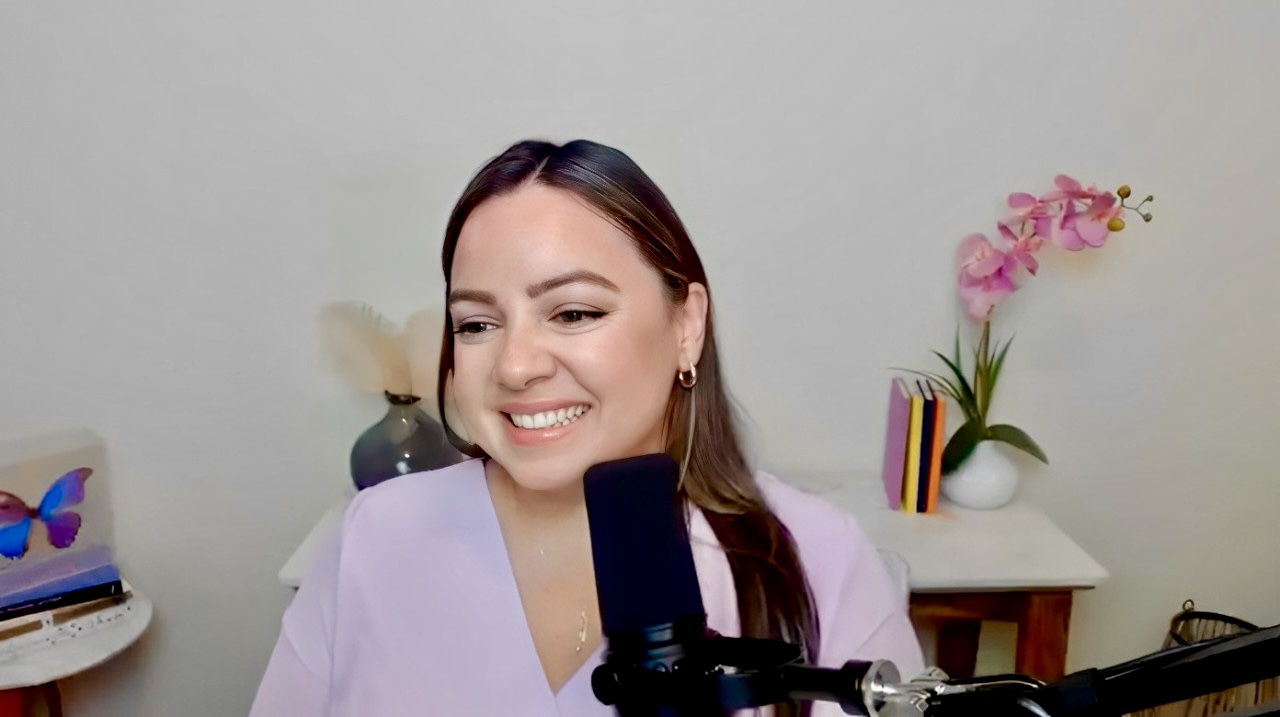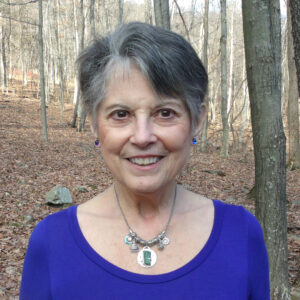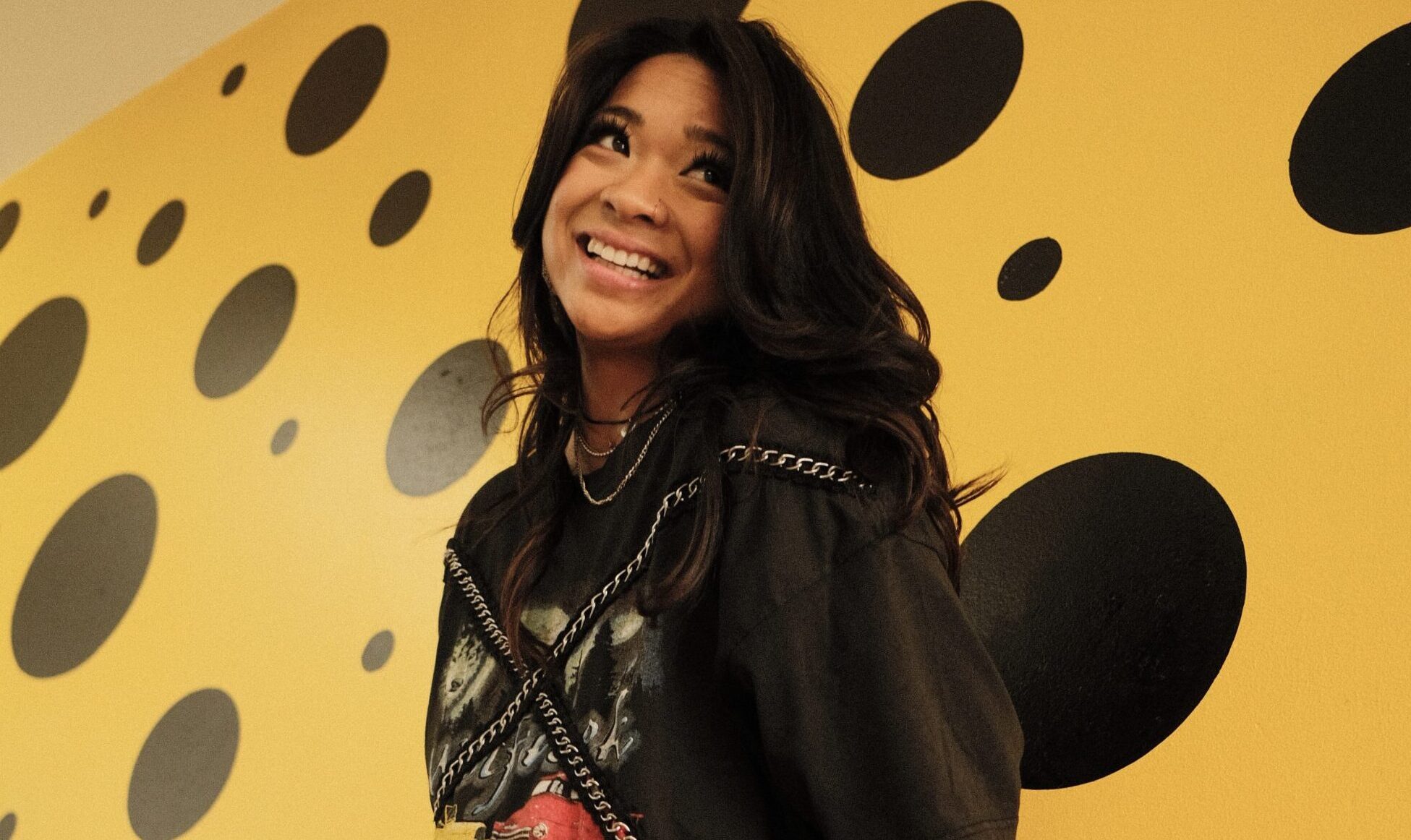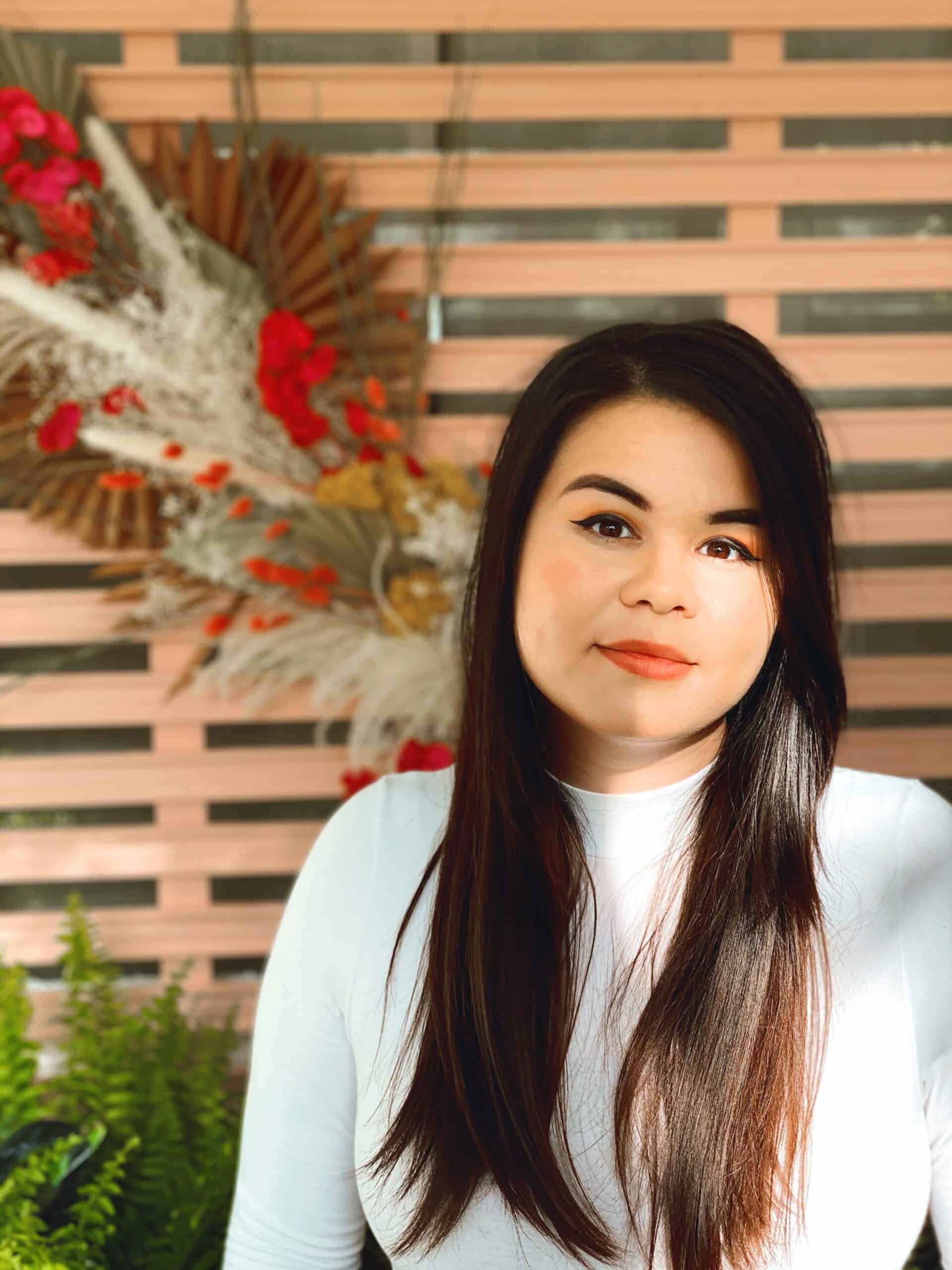Nina Rodriguez, founder of Grief and Light and host of the Grief and Light Podcast, turned her devastating personal loss into a mission to support others navigating the challenging journey of grief. After the sudden death of her beloved brother Yosef in 2019, Nina found herself searching for answers and community in a world where grief often remains a taboo topic. Through her platform, she shares her experiences, fosters open dialogue, and provides grief-informed support to help others find hope and healing. Join us as Nina opens up about her story, the evolution of Grief and Light, and her vision for creating a more empathetic, grief-informed society.
Can you share with us the personal story behind starting Grief and Light? What led you to create this platform?
My life took an unexpected turn on September 11. Not THE infamous 9/11 the world remembers, but 9/11, 2019, the day that turned our lives upside down.
It was a rather ordinary Wednesday. I met with some of my real estate clients, and my husband came to pick me up from work around 6pm, as usual. We lived and worked in the Brickell/Downtown Miami area, so we shared a vehicle. It was also a nice way to catch up on each other’s day on our way home. I received a FaceTime call from my brother, Yosef, letting me know he’s on his way to our grandmother’s house to meet our uncle whose dog he was dog sitting for the weekend. The dog’s name was Slinky, and he was the remaining of three dachshunds they had for many years. He was old, frail and almost blind, so my brother’s concern was that something would happen to the dog while my uncle was away. I reassured him everything would be fine, and to text me when he got to our grandmother’s house, which he did.
I don’t remember our very last words, although we always said “te quiero mucho”, which translates to “love you very much” in Spanish. However, I vividly remember that the sun was setting around that time, and the golden hour glow reflected beautifully on his face. I recall thinking “his face looks angelic”; peaceful. That gave me peace of mind.
I smiled in quiet gratitude after hanging up. It was the day after we celebrated his 32nd birthday with our family. My brother suffered a lot of personal struggles, so seeing him peaceful gave me peace. All was well in that moment.
My husband and I arrived home, ate dinner, then sat in our living room talking about our day.
An hour or so later, my grandfather, who was out-of-town on vacation, called me asking if he knew where my brother was, because he called the both house and his cell phone, and he couldn’t get a hold of him. I told him I spoke with Yosef earlier and all was well, so not to worry. I’m not sure why he sounded worried, but looking back at that moment years later, I believe his intuition or Soul knew something wasn’t right.
My husband and I continue our conversation, which goes something like this:
“There’s a guy at my job who always asks me, “how was your day today?’ I don’t understand why he always asks that way. I just saw him yesterday and I’m at work today, so obviously I’m okay.”
It must have been “one of those days” at work, but I found my husband’s annoyance a bit comical.
I respond, “I’m not sure but someone who asks ‘how are you doing today?’ is likely someone who has experienced a life-changing event. It’s a person who understands that no two days are the same and likely does not take his days for granted. I bet if you sit down with him and ask him about his life, he would eventually tell you why.”
My cell phone rings. It’s my dad.
Dad: “are you sitting down?”
Me: “no, why?”
Dad: “Yosef died.”
Rage filled my body.
Me:“Why the f*uck would you say that?! What the f*ck is wrong with you?!”
I don’t speak to my father this way, but I could not understand why he would say something so cruel.
Dad: “He died, come home…”
The tone in his voice told me he was not lying. My dad is the type of person who would never joke about that. It just took me some time to process his words.
In that moment, something in me disconnected, and life immediately felt like a movie. I was the person watching this horror film play out in front of me, because there is absolutely no way it was real.
My husband and I rushed the hour drive home up north. There was a full moon, and I remember thinking, “THIS IS YOUR FAULT!!!”
I was furious! The moon affects people’s moods, and something happened that took an otherwise ordinary day into this living nightmare.
My brain tried to make sense of the chaos in any way it could.
It took me about 3 ½ years to stop seeing my life like a movie. Thats disconnected feeling is called dissociation, I later learned. It’s a protective mechanism to help you function after a traumatic event.
I now call it Divine Grace in action, because it protected me from the flood of trauma and emotions that would have otherwise destroyed me.
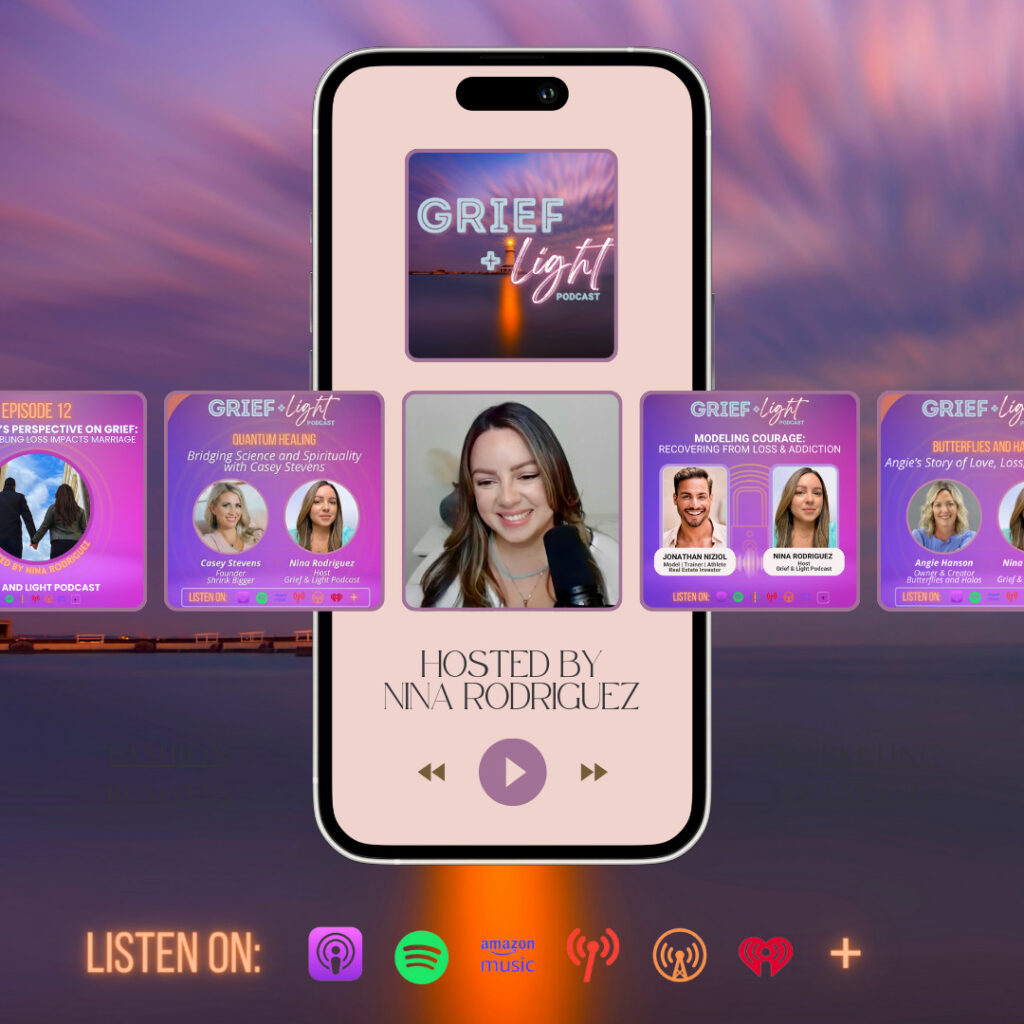
Losing a loved one can be an incredibly challenging experience. How did you navigate your grief journey after losing your sibling, and how did it inspire you to help others going through similar experiences?
Yosef was my only sibling. We were incredibly close.
Losing him was losing myself, and our family as we knew it. Our family is small, close, so this was absolutely devastating.
In the blurry days that followed, my biggest concern was making sure the pain of bereavement and grief didn’t kill anyone else. I deeply feared my parents dying from this, or me.
I Google searched if grief could kill a griever, and stumbled across tako-tsubo cardiomyopathy, or broken heart syndrome. It was insult to injury – so much pain could lead to a medical crisis, or potentially cost you your life. I desperately tried to create a sense of peace and support in our home.
We promised each other we would say his name and allow each other to grieve as they needed to.
I also needed to know where he was.
How can a person be here one second, then seemingly nowhere the next?? There were not enough Bible verses, religious beliefs or spirituality that could satisfy my need to know in that moment.
I devoured books, spent hours searching for “what happens after we die?” on YouTube, joined every virtual support group I could to find answers.
That’s when I stumbled upon a book called “Embraced by the Light” by Bettie Eadie. I randomly opened it up, and read the title of that chapter – “The Tunnel”. I devoured that book in utter confusion and fascination. It was her story about her near death experience (NDE), and my gateway into stories about the afterlife. I needed answers, and the YouTube algorithm kept feeding me stories from people who claim to have “gone there” and returned.
These stories, the two virtual sibling support groups I found, deep conversations with my parents, and eventual signs from Spirit, got me through the early days.
I quickly realized how taboo a topic grief and loss are. Not being able to openly express the fullness of this experience is a special kind of suffering.
I was shocked at how little resources were available to me, and only two focused on adult sibling loss.
Although I could talk to my parents about my brother, they were processing their own loss and grief. I felt I could no longer lean on them for support, as they could barely support themselves.
I had to be the strong one. But I needed help, too.
The days and months passed, then the global pandemic hit. Whatever sliver of peace of mind that I managed to hang onto between September 2019 and March 2020, completely evaporated.
I desperately sought help and support, but could not find what I needed.
The words – be the change you want to see – swirled in my mind for weeks. I’m not sure what I could offer to anyone in this state of being, but it felt important to consider. I stored the thought on a mental “shelf”. Intuition whispered that thought would serve a purpose later.
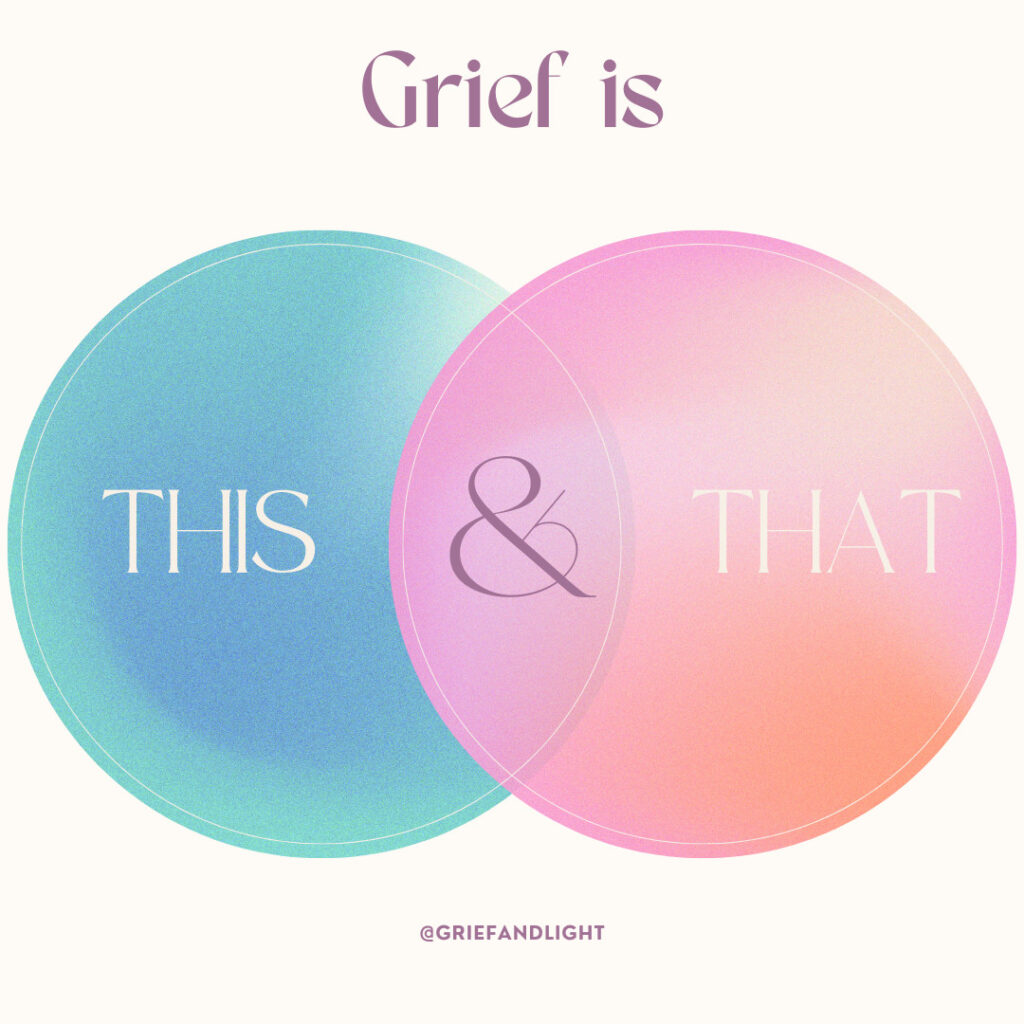
What were some of the biggest struggles or challenges you faced while establishing Grief and Light? How did you overcome them?
Grief and Light began as a personal “grief account” on Instagram where I could share these new emotions I was experiencing with whomever was willing to listen. My grief needed an outlet, and this became that outlet.
I wasn’t “talking to” anyone, but the posts resonated with strangers who seemed to have similar anonymous grief accounts. Over the months, the account began growing, and I started to feel seen in the truth of my grief by complete strangers on the internet.
This tiny corner of the virtual space felt authentic and helped me breathe. It gained more of my attention as time went by, and I connected with other grievers who seemed to understand me better than my own family. I giggled at the thought that I didn’t even know their name or what they looked like, and yet, they felt like home.
In January 2023, I worked with a career coach to help me find a more aligned career path. My brother’s death and my grief left me feeling disconnected from my work in the real estate industry. What I expected to be a 3-6 month career change process ended up taking 11 months. The alchemical process helped me shed what no longer served me, as well as identify my authentic voice in this new paradigm.
I realized my heart had a lot to say, and the Grief and Light account kept growing with followers who showed their names and faces, and who even wrote books and worked in the “grief space”. I didn’t even realize it was a thing, but it increasingly felt like my real home. The irony of the “grief space” is that it allowed me to genuinely feel joy and hope.
With time, it became abundantly clear that I was meant to work in this space. I began with the Podcast, as that felt the most natural progression, and the answer to “being the change I wished to see” some years prior. I deeply felt the need for open dialogue about this experience. The Grief and Life Podcast also yielded speaking opportunities, priceless connections, and began to shape up like something that could support me both financially and emotionally, AND I could serve this community from a heart-centered perspective.
I completed Megan Devine’s Grief Care certification program this past February, because I value learning as much as possible in this capacity. This way, I’m grief-informed when I speak, and I do not unintentionally hurt those I work with because of potential personal blind spots. It’s important for me to understand how to work with people on different grief journeys, or who experience grief differently than I do. Their way is valid as well, and I want to know how to properly honor that.
When you’re walking an aligned path and leading from a heart-centered space, the challenges don’t feel like challenges. At least they haven’t yet.
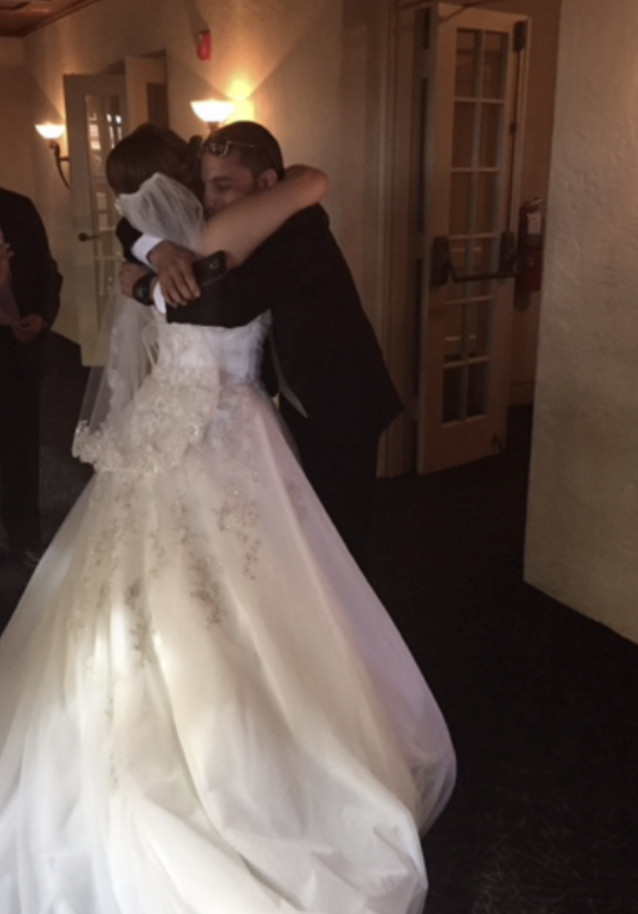
What are some of the most valuable lessons you’ve learned throughout your journey with Grief and Light?
Approach the unknown with heart-centered curiosity, and you will be led to the people, places and resources that you need when you need them.
There is an immense need for grief-informed support.
There is tremendous work to do to change the public perception and discourse about what grief is, how to navigate it, and how to support grievers. This extends to the corporate space, as well.
The universe works for us. Always. Even when it doesn’t seem like it.
Grief can be a doorway through which we can connect with the most authentic and vulnerable parts of a person, including ourselves. It turns strangers into chosen family, realigns our priorities, and can lead us to our most authentic lived experiences.
Grief is not this OR that; it’s this AND that. Grief thrusts us into living in the “AND” space of life where multiple truths can be true at once, where we can hold nuance, and where we can see the humanity in our differences.
Grief is an invitation to slow down and realign.
Lastly, that done is better than perfect. If it’s in your heart and comes from a pure place – do it!
As someone who has experienced profound loss, what advice would you give to others who are struggling with grief and looking for ways to cope and heal?
It is as bad as it feels. You are not going crazy. Breathe. Then breathe again. And again…
Shorten your timeline – you are not the version that will be dealing with the things that happen a year from now, 5 years, 10 years from now… No need to think about the future in this moment. Focus on the next breath, the next minute, the next day. And if that feels too overwhelming, shorten the timeline even more.
Drink water. Lots of it.
Find your tribe. We’re here ready to welcome you with open arms and zero platitudes (search the grief hashtags).
That past version of you will never be. And that’s okay. Something new will emerge with time, and you will love it just as much.
The secondary losses and sense of permanency are brutal.
Be very gentle with yourself every step of the way. This is the first time you’re meeting this version of yourself. It will take time to fully understand it.
Family and friends will disappoint and hurt you. Some of them won’t continue of life’s journey with you. Show them grace, too. They will understand someday, but it may not be their time yet, and that’s okay.
Setting boundaries and saying “no” more often will keep you sane.
One day it will not feel this heavy or sharp. That day will be a mix of emotions. Be gentle with yourself.
Welcome to the Both/And part of life. Grief and joy can coexist. You will learn to hold opposites on the palm of one hand, and this will be the new normal.
Life will be beautiful again.
How has Grief and Light evolved since its inception, and what are your future plans or goals for the platform and community?
I touched on this previously, but it started as a personal outlet → podcast → Grief-informed support (monthly virtual meetups and 1:1 support) → virtual community → “Grief Space” resource.
My next goal is to build support circles and host the first in-person retreat. I’m located in Miami, so the first one will likely take place here. Stay tuned.
Can you share a particularly inspirational or touching story from your interactions with the Grief and Light community that has stayed with you?
Each story has an inspirational and touching element, and they stay with me. The stories of people who have experienced multiple losses, like that of children/adult child, and/or spouse, and/or sibling, stand out in my mind, because one loss is devastating enough.
There is one story in particular that comes to mind at this time, because of its intensity.
Episode: 10 WEEKS OF TEARS: EARLY GRIEF, SIBLING LOSS & HOLIDAY HEARTACHE – https://www.buzzsprout.com/2163685/14059757
The guest on that show reached out to me only 10 weeks after her sister died. For anyone who has experienced a sudden loss, 10 weeks is a blink in grief time.
I prefer not to record someone in such early grief out of respect for the vulnerability of that time, snd yet, something in me felt called to share her story. Perhaps it was the fact that it reminded me of my own at such a visceral level. It was an opportunity to be the person I needed at that time. That said, I became overwhelmed by the intensity and unexpected details of her story as she shared it. I remember shaking and crying after we recorded it, and feeling exhausted for days after. It hit too close to home.
After we published it, the guest thanked me multiple times for helping her share her story. She has since mustered the strength to fight for justice related to the manner in which her sister passed.
I’m deeply sorry she knows this pain, AND I’m grateful for the opportunity to have connected with her, and to help her honor her sister’s memory with love and compassion.
What role do you think platforms like Grief and Light play in creating a more grief-informed and empathetic world?
Shame, pain, trauma, stigmas, etc… thrive in darkness, by remaining taboo topics.
Death, loss and grief are universal experiences. Grief and loss even more so, as they are not limited to the loss of life. We experience loss and grief as a regular part of our human existence, and yet all of these life experiences are rarely acknowledged.
We live in a grief-averse, grief-illiterate society that likes to bypass anything that doesn’t feel pleasant.
There are losses that change our perception of life and our role in it. These experiences must be processed. Grief is that divinely designed process innate within us, and yet we have been conditioned to separate ourselves from our painful lived experiences.
This dissonance creates a society where people are hurting and unable to speak the full truth about their lived experience. This is why we have a loneliness epidemic, increasing rates of suicidality, and one could argue we are generally over-medicated.
Open conversations about the reality of death, grief, and loss have a normalizing effect on those experiencing it, especially for the first time. We find common ground, one person’s experience becomes the roadmap for another’s, and story by story, truth by truth, we help each other move forward in impossibly beautiful and powerful ways.
The element of being grief-informed is important, so as to avoid pathologizing grief, which is fundamentally at odds with what grief actually is.
Grief is a natural, normal, human response to loss and life-altering change. It is not a disease or disorder, or something to be diagnosed from. In the case of the loss of a loved one, “grief lasts as long as love lasts”, as Megan Devine says..
By understanding these truths and the nuance of the experience as it manifests in the context of each griever’s life, we can learn to hold space for truths different from our own. We can learn to empathize with others through the common ground of loss, and we can help each other navigate through life’s challenges with kindness, grace and compassion.
Our unresolved pain and suffering is running in the background of all we do whether we are conscious of it or not. How often do we spill our unresolved hurt on others? What ripple effect does that have? What ripple effect would it have if we faced our truth as it is? How much less effort would it take to process and make peace with our lived experiences?
I believe holding space for public grief-informed conversations and discourses is key in defining how we move forward within the grief community and society at large.
How do you balance your personal experiences and emotions with the responsibilities of leading and growing Grief and Light?
One of the biggest challenges is to not try to fix a person who is expressing pain.
We are naturally hardwired to ease people’s pain. However, in the context of loss and grief, we need witnessing without fixing. It may seem counterintuitive, but when we try to “fix” the unfixable, what we’re actually doing is negating the griever’s lived experience as it is.. This adds to their suffering.
In grief, it is much more powerful to see someone in their pain, acknowledge it and help them witness it, than it is to tell them to look at the bright side of the world that has been destroyed in front of them.
Part of holding sacred space for grievers is becoming the space where they can relax into their pain and experience it fully as it is. That requires training, which I’ve acquired through Megan Devine’s grief care certification program, and will continue to acquire in other forms. It also requires us to become a “clear vessel” with defined boundaries.
At the same time, I am aware that caretakers also need caretaking. I have my rituals, journaling practices, support groups, podcast, community and puppy to hold me through. I’m open and honest about where I am, and I draw boundaries – energetically, personally and professionally. I dedicate time to grounding myself in non-grief related activities, because I am worthy of a lighthearted, joyful life after all.
Grief is messy and cannot be fully contained, therefore, I also ask others to hold grace for me along the way.
What message or legacy do you hope to leave through your work with Grief and Light?
You are not alone. I see you just as you are. Your story matters. There is always hope. You will always remember them. It’s always okay to say their name.
My wish is for grievers know they are in their right to honor their truth as it is, regardless of what anyone thinks. Take your time.
I want to inspire grief-informed conversations that normalize the reality of the griever’s experience, which will eventually affect everyone.
To know that it is possible to live a fulfilling, joyful life alongside your pain and memory of your person.
I hope you feel seen and empowered to share your truth openly and authentically.
May anyone who feels called to hold grief-informed spaces and conversations go for it!
And personally, I wish for those I meet and who are touched by my work to also get to know my brother Yosef through me. He is forever a part of me.
Nina Rodriguez is founder and host of the Grief and Light Podcast, created after the unexpected
loss of her only sibling, Yosef, as an authentic exploration of grief and life after loss. Through
each conversation, she aims to give a voice to the griever’s experience, and foster a more
grief-informed, hopeful world. Beyond the podcast, Nina extends her grief-informed support
through monthly circles, personalized mentorship, speaking engagements, active presence on
social media, and forthcoming in-person retreats. Explore more at griefandlight.com and IG
@griefandlight.
- https://griefandlight.buzzsprout.com/share
- Social Media links are all @griefandlight:
- Instagram (main platform)
- Threads
- TikTok
- griefandlight.com
- Book a complimentary consultation

